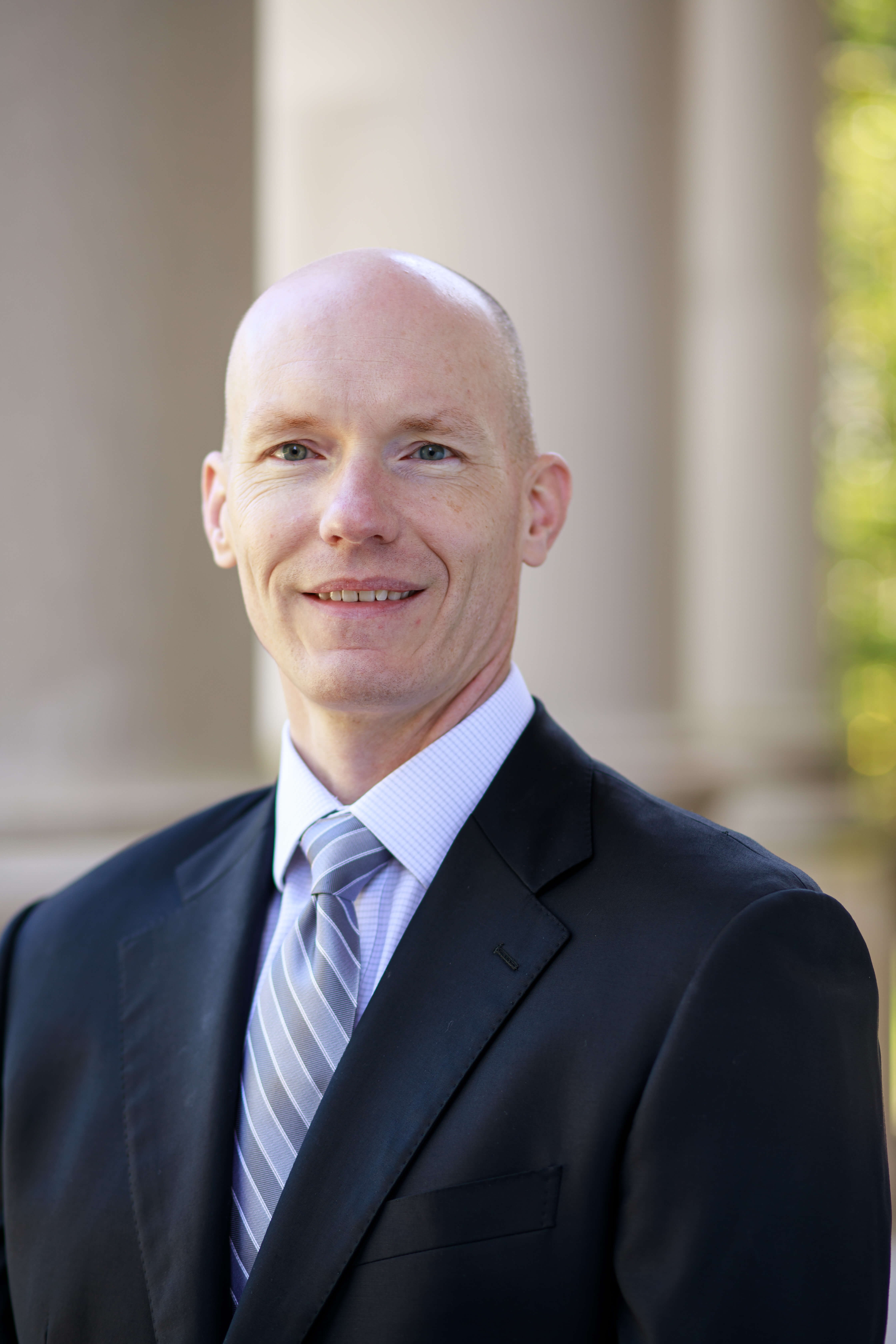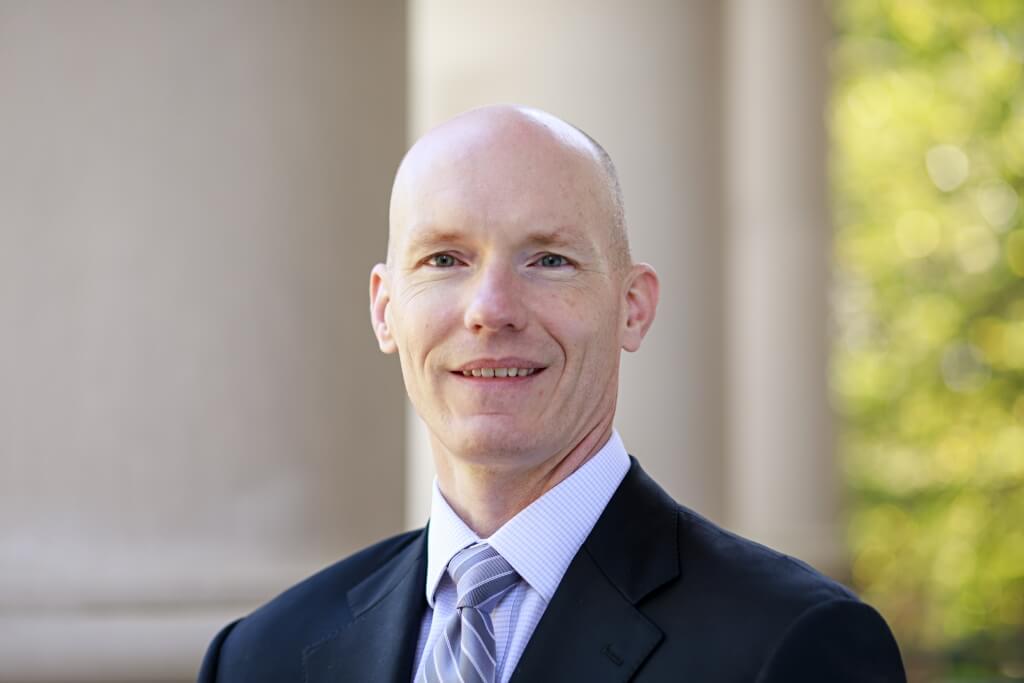
Robert H. Scott III, Ph.D.
- Professor
- Arthur and Dorothy Greenbaum/Robert Ferguson/NJAR Endowed Chair in Real Estate Policy
Department: Economics, Finance, and Real Estate
Office: Pozycki Hall 103
Phone: 732-263-5532
Email: rscott@monmouth.edu
Robert Haywood Scott III is professor in the Department of Economics, Finance, and Real Estate and the Arthur and Dorothy Greenbaum/Robert Ferguson/NJAR endowed chair in Real Estate Policy. He teaches Business Statistics, Financial Econometrics, and Real Estate Economics. His research interests include credit and debt markets, real estate economics, applied econometrics, financial literacy, and gambling.
Books
Scott III, R., Mitchell, K., & Patten, J. (2023). “Bait and Switch: How Student Loan Debt Stifles Social Mobility,” Palgrave Macmillan.
Mitchell, K. & Scott III, R. (2019). “Pesos or Plastic? Financial Inclusion, Taxation, and Development in South America,” Palgrave Macmillan.
Scott III, R. (2015). “Kenneth Boulding: A Voice Crying in the Wilderness,” in the Great Thinkers in Economics book series, Palgrave Macmillan.
Scholarly Articles
Scott III, R., Sher, M. & Paz, M. (2024). “In the Money: An Analysis of Monetary Value of Chips and Player Outcomes in No Limit Texas Hold’em Poker Tournaments”, The Journal of Gambling Business and Economics, Forthcoming.
Scott III, R. (2024). “The Evolution of Redlining in the United States Housing Market”, Journal of Economic Issues, Vol. 58(2): 582-591, Forthcoming.
Fouad, G. & Scott III, R. (2024). “The Beer Garden State: Neolocalism and Clustering of Craft Breweries in New Jersey”, Journal of Wine Economics, Forthcoming: https://www.cambridge.org/core/journals/journal-of-wine-economics/article/beer-garden-state-neolocalism-and-clustering-of-craft-breweries-in-new-jersey/17FCD9E7C742AC03E2332B0670F23995
Pressman, S. & Scott III, R. (2024). “The 7 Debtly Sins: An Institutionalist Explanation of Why Consumer Debt Levels are So High”, Journal of Economic Issues, Forthcoming.
Scott III, R. & Daigle, J. (2022). “Shoring Up Property Tax Assessment Inequities in Monmouth County, New Jersey”, Journal of Property Tax Assessment & Administration, 19(2): 71-86.
Scott III, R., Mitchell, K. & Patten, J. (2022). “Intergroup Disparity Among Student Loan Borrowers”, Review of Evolutionary Political Economy, 3(3): 515-538.
Scott III, R. & Bloom, S., (2022). “Student Loan Debt and First-Time Home Buying in USA”, International Journal of Housing Markets and Analysis, 15(1): 80-93.
Scott III, R. (2022). “Kenneth Boulding: A Friends’ Economist”, Journal of Philosophical Economics, XV(1): 35-61.
Scott III, R. & Pressman, S., (2021). “The Not Good Society: Institutional Weaknesses Revealed by COVID-19”, Journal of Economic Issues, Vol. 55(2): 477-483
Scott III, R. & Smith, D. (2020). “Pair-a-Dice Lost: Experiments in Dice Control”, UNLV Gaming Research & Review Journal, Vol. 24(1): 69-80.
Scott III, R. & Pressman, S., (2019). “Financially Unstable Households”, Journal of Economic Issues, Vol. 53(2): 523-531.
Mitchell, K. & Scott III, R. (2019). “Will that be Cash or Credit? Payment Preferences and Rising VAT in Argentina”, Journal of Post Keynesian Economics, Vol. 42(1): 1-15.
Scott III, R. & Bloom, S. (2018). “Is There a Student Loan Debt Bubble? Not Yet, But Soon”, Challenge, Vol. 61(3), May/June: 231-239.
Smith, D. & Scott III, R. (2018). “Golden Arm: A Probabilistic Study of Dice Control in Craps”, UNLV Gaming Research & Review Journal, Vol. 22(1): 29-36.
Pressman, S. & Scott III, R. (2018). “Ten Years after the Crisis: A Lost Decade?”, Real-World Economics Review, 83, March: 2-19.
Scott III, R. & Boulding, J. R., “Kenneth and Elise Boulding: The Quaker Foundations of their Contributions to the Social Sciences.” In Tom Head, David Ross and Michael Snarr (Eds.), Quakers, Politics, and Economics: Quakers in the Disciplines, Volume 5. Longmeadow, MA: Full Media Services, 2018: pp: 344-373.
Scott III, R. & Pressman, S. (2017). “The Higher Earning in America: Are 529 Plans a Good Way to Save for College?”, Journal of Economic Issues, Vol. 51(2), June: 375-382.
Scott III, R. & Pressman, S. (2017). “House Arrest: The Effects of Underwater and Low-Equity Mortgages on Small Business Failures and Mobility”, Review of Social Economy, Vol. 75(2), June: 231-249.
Mitchell, K. & Scott III, R. (2017). “Old Malbec in New Bottles: The Return of Neoliberalism in Argentina”, Monthly Review, Vol. 69(2), June: 43-50.
Pressman, S. & Scott III, R. (2017). “Thomas Piketty, Growth, Distribution and the Environment”. In Peter Victor and Brett Dolter (Eds.), Handbook on Growth and Sustainability. Cheltenham, UK: Edward Elgar: pp: 356-371.
Scott III, R. (2017). “Rethinking the Environment”. In Louis-Philippe Rochon and Sergio Rossi (Eds.), Rethinking Economics. Cheltenham, UK: Edward Elgar: pp: 319-336.
Scott III, R. & Pressman, S. (2015). “Inadequate Household Deleveraging: Income, Debt, and Social Provisioning”, Journal of Economic Issues, Vol. 49(2), June: 483-492.
Scott III, R. (2015). “Financial Literacy”. In Louis-Philippe Rochon and Sergio Rossi (Eds.), Encyclopedia of Central Banking, Cheltenham, UK: Edward Elgar: 199-201.
Scott III, R. & Mitchell, K. (2014). “Don’t Cry for Argentina: It’s Not 2001 Again”, Challenge, Vol. 57(6): 56-70.
Pressman, S. & Scott III, R. (2014). “Children Need Paid Parental Leave Most”, Challenge, Vol. 57(5): 65-80.
Pressman, S. & Scott III, R. (2014). “Child Poverty in America: How Paid Parental Leave Can Help”, A Brighter Future: Improving the Standard of Living Now and for the Next Generation, M.E. Sharpe: 165-183.
Scott III, R. & Pressman, S. (2013). “Debt-Poor Kids”, Journal of Poverty, Vol. 17(3), Fall: 356-373.
Scott III, R. & Pressman, S. (2013). “Household Debt and Income Distribution”, Journal of Economic Issues, Vol. 47(2), June: 323-331.
Scott III, R. (2012). “Consumer Debt”. In John King (Ed.), The Elgar Companion to Post Keynesian Economics (2nd ed.). Cheltenham, UK: Edward Elgar: 96-101.
Scott III, R. (2011). “A Double Squeeze on the Middle Class”, Journal of Economic Issues, Vol. 45(2), June: 333-342.
Scott III, R. (2011). “Tableau Économique: Teaching Economics with a Tablet Computer”, Journal of Economic Education, Vol. 42(2), June: 175-180.
Scott III, R. (2010). “Credit Card Ownership Among American High School Seniors: 1997-2008”, Journal of Family and Economic Issues, Vol. 31(2), June: 151-160.
Scott III, R. (2010). “Bloomberg 101”, Journal of Financial Education, Vol. 36(1/2), Spring/Summer: 80-88.
Pressman, S. & Scott III, R. (2010). “Consumer Debt and Poverty Measurement”, Focus, Vol. 27(1), Summer: 9-12.
Pressman, S. & Scott III, R. (2009). “Debt and the Measurement of Poverty and Inequality in the U.S.”, Review of Social Economy, Vol. 67(2), June (lead article): 127-146.
Pressman, S. & Scott III, R. (2009). “Who are the Debt Poor?”, Journal of Economic Issues, Vol. 43(2), June: 423-432.
Scott III, R. (2009). “The Post Keynesian/Ecological Economics of Kenneth Boulding”. In Clive Spash, Ric Holt, and Steven Pressman (Eds.), Post Keynesian and Ecological Economics: Confronting Environmental Issues. Cheltenham, UK: Edward Elgar: 99-113.
Scott III, R. (2007). “The Bankruptcy Abuse Prevention and Consumer Protection Act of 2005: How the Credit Card Industry’s Perseverance Paid Off”, Journal of Economic Issues, Vol. 41(4), December: 943-960.
Scott III, R. (2007). “Credit Card Use and Abuse: A Veblenian Analysis”, Journal of Economic Issues, Vol. 41(2), June: 567-574.
Smith, D. & Scott III, R. (2007). “Optimum Initial Billing Period”, Journal of Applied Business and Economics, Vol. 7(1), March: 51-55.
Scott III, R. (2007). “Fill ‘er Up: A Study of Statewide Self-Service Gasoline Station Bans”, Challenge, Vol. 50(5): 103-114.


